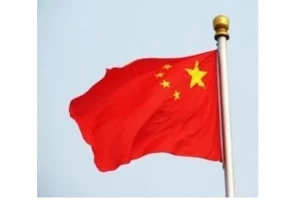A Tibetan parliamentary delegation, comprising Parliamentarians Tenpa Yarphel and Lopon Thupten Gyaltsen, called for robust support for Tibet during the ‘Tibet Mukti Sadhana Aur Bharat-China Sambandh’ conference in Patna on November 16-17, 2024.
The event, organised by the India Tibet Friendship Society and the Jagjivan Ram Institute of Parliamentary Studies and Research, gathered prominent figures to discuss India-China relations, with particular attention to the Tibet issue, as reported by the Central Tibetan Administration.
Addressing the conference, MP Lopon Thupten Gyaltsen emphasised the critical need for India’s support for Tibet amidst the ongoing geopolitical tensions between India and China. He invoked Tibet’s historical independence, referencing the 1914 Shimla Convention and Tibet’s participation as an independent nation in the 1947 Asian Relations Conference in Delhi.
MP Gyaltsen asserted that prior to China’s occupation of Tibet, the Indo-Tibetan border remained peaceful, without military presence. He advocated for the re-establishment of Tibet as a neutral and peaceful buffer zone between India and China, highlighting its potential to bolster regional security and stability.
Underscoring the profound cultural, spiritual, and historical ties between Tibet and India, MP Gyaltsen noted the influence of Tibetan Buddhism, rooted in ancient Indian spiritual traditions, on the Himalayan region’s cultural and religious landscape.
He urged India to play an active role in preserving Tibetan religious practices and cultural heritage, emphasising that Tibetans in exile and the Central Tibetan Administration (CTA) rely heavily on India for refuge and protection of their traditions and way of life.
In a stirring appeal, MP Gyaltsen called for formal recognition of the Dalai Lama’s contributions to Tibet and the world. He proposed awarding the Dalai Lama the Bharat Ratna, India’s highest civilian honour.
According to MP Gyaltsen, “Such an award would be a significant gesture of solidarity from India and would inspire pride among Tibetans, the Himalayan peoples, and His Holiness’s global following.”
The Dalai Lama, a globally revered spiritual leader, remains a symbol of Tibet’s nonviolent resistance to Chinese oppression.
The Tibet-China conflict, a complex geopolitical dispute, revolves around national sovereignty, human rights, and cultural identity. At its heart lies Tibet’s political status, its relationship with China, and the rights of Tibetans under Chinese governance. The issue carries significant historical, cultural, and political implications and continues to attract global attention without resolution.




















